It’s not often, when you live at the Southern tip of Africa, to literally bump into an author… but we did. We met at a nail bar – I know, of all places!!! Pan Macmillan South Africa invited me to a book function and I have to confess that I had never ever had my nails done before, I could never see the point (I have totally changed my mind since then). Well fabulous nails and a heaps of chocolate and good books… turns out together they make a very fun evening. Add to the mix a friendly book lover and life couldn’t get much better. We recently reviewed books by South African author Liz De Jager, and we got chatting and chatting. Pop a writer and a blogger next to each other for half an hour and there will be so many words toing and froing that I literally had to interview her. Here is someone that absolutely loves books… and reads and reads and reads. She has heaps of book loving to share with us…
Meet Liz De Jager
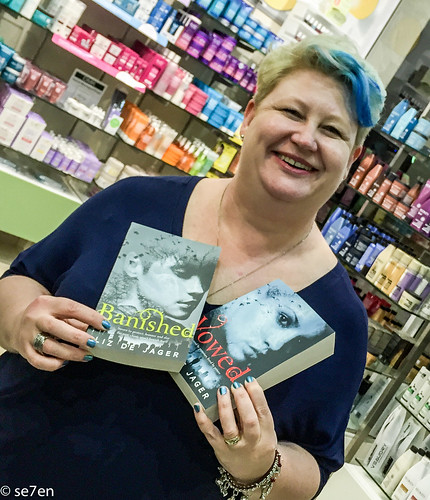
“Hi, I am Liz De Jager and I am a South African author living in London for the past fifteen years. I’m an avid reader, writer and tea drinker. I’m also addicted to stationery and I have a fondness for pretty bags. Send help.”
Se7en+1 Questions For Author, Liz De Jager
- Do you have a typical working day? Are you a disciplined writer that works to a strict schedule or do you write furiously when the inspiration grabs you?
- Could you give us a word picture of how you work: In a quiet spot, with a clear desk… or in the midst of life, with background music… do you have a favourite snack when you are writing or are you too involved to even think of eating?
- In your books you have created an entire world, how do you keep track of it all? How do you get on with everyday life when in your head you are living in the world of the fae?
- Tell us about your reading journey as a child… Where did your love of words begin and do you have a favourite childhood book?
- Do you like reading one book at a time, or a couple? What is your favourite genre? What are you reading right now?
- When you were a child what did you want to do when you grew up? Did you always know you would be a writer or did that idea grow with you?
- Your books are written for YA readers, what do you enjoy about writing for this age group? Do you think you will always write for YA readers? In fact that leads onto: Do you have a writing aspiration, a dream?
- What would you say to inspire young, potential writers to encourage them to get that book that is inside them onto paper?
No, I like to think I’m a pretty disciplined writer. I write forty minutes to an hour before work, then again during my lunch break then also in the evenings from say 9pm to midnight. On weekends I try and make sure I have at least one day free to write. I’m lucky that my husband is also a writer – adult fantasy novels – so we’re both pretty in the zone.
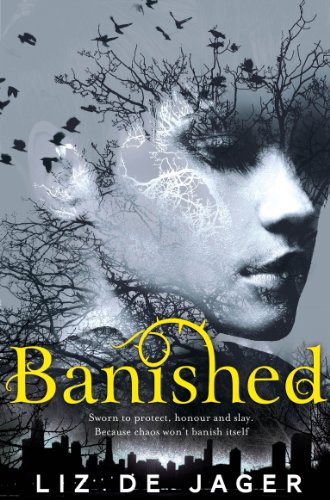
I can work anywhere and I think I’m lucky like that. My main writing space is my untidy dining room table with my writing playlist blaring through the tiny house we rent in Kent, UK. I’m surrounded by my thousands of books on higgledy piggeldy bookcases and I love it. It’s also very handy to grab names from for walk-on secondary characters – just looking around and trying to find names on those spines facing out to me. I also love working in café’s. There’s a local café that I adore writing in – they know me, they know I’m a writer so they just keep the tea coming. Occasionally the owner would stop by my table and ask me if I’ve eaten anything yet. They are very sweet and I love them. And yes, I always write to music. Music and writing is essentially my life. I have a playlist that acts as a sort of Pavlovian instinct: I hear it and I have to go write. When I’m at the café, my snack is their toasted cheese sandwiches on soda bread. It is the food of the gods. If I’m at home…tea, buckets of them.
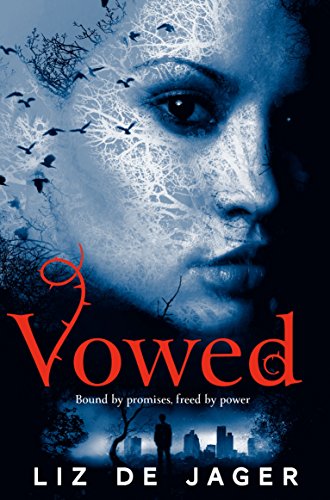
It’s kinda weird to explain. I think I’ve learned to compartamentalise between day-job and writing. I am logical, level minded, busy as Liz the PA but then, for that 45 minutes during lunch, I shed that skin, step out of it, and I’m the crazy writer girl thinking about creative ways to try and get monsters to eat my characters. I mean, I daydream often. Especially on the train when it’s too crowded to write. I’ll have my earphones in and let the music take me and I’ll play the what if game. I really think that these time-out moments are very conducive to writing and I love them. Other time-out moments for me is walking the dog and doing ironing. It’s the no-brain activities that let your mind just get on with figuring out stuff you may need to write. As to how I keep track of my world? I have notebooks jampacked with loads of little things about the characters and the world…but sometimes stuff just happens organically and it’s weird to explain but you just feel that it makes sense within the context of your world so you’ll go with it.
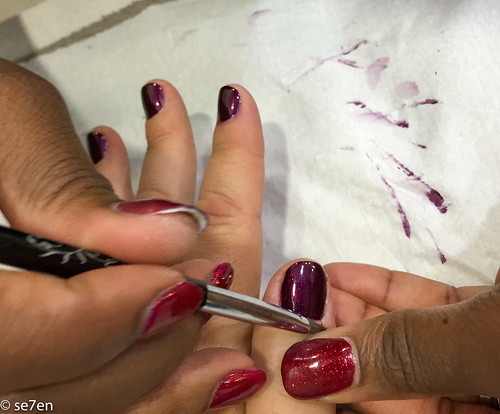
I grew up in a house that had very few books. My mum saw it as a waste of time. She was hugely active and into making things – she was hugely talented as a dress maker, wedding cake maker, leatherworker and potter. I inherited none of her skills, apart from a keen eye for what works aesthetically and what doesn’t perhaps? My dad was the reader and storyteller. But he read rarely as he worked shifts…but the books he read were all cowboy books and westerns. So that’s what I read. Until I discovered the library and bugged my mum to take me there every week. I don’t really have a favourite childhood book but I think the book that blew my mind and made me realise how vast our world was, was a book by Louis L’Amour called The Walking Drum. L’Amour is famous for writing these huge epic westerns but The Walking Drum is a historical novel and has everything I craved growing up: action, adventure, dastardly deeds, redemption, love. It is probably one of my biggest influences, to this day.
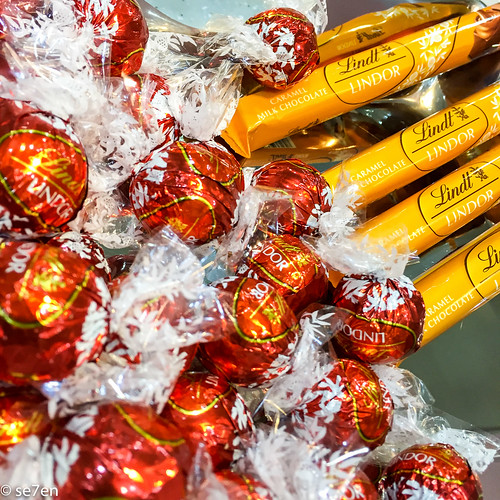
I love reading. When I write I can’t read fiction, so I read a lot of non-fiction. And I’m not picky. I’ve recently read about tank warfare during WWII as my husband is really into it and the book was lying around before bedtime. It was fascinating and really brought home the terror and adventure these men went through riding these monstrous machines. As for genres of stuff I read? Again, mostly everything apart from really hard sci-fi. I love crime novels so much – set anywhere in the world. I’m a huge fan of Lee Child’s, Belinda Bauer, Deon Meyer. I also love Ben Okri’s books, John le Carre, Hilary Mantel, David Mitchell, Arturo Perez Reverte. But then I also love YA books and count so many authors as friends: Tanya Byrne, SA Partridge, Non Pratt, Barry Lyga, Julianna Baggott, Karen Healey, AS King, Holly Black, Sarah Reese Brennan….the list is endless. I’m basically a black hole for books – give it to me and I will devour it. I’m currently going through a fantasy reading phase so I’m reading Karen Miller’s newest novel, but I’ve also bought Naomi Novik’s newest and Joe Abercrombie’s two newest novels too.
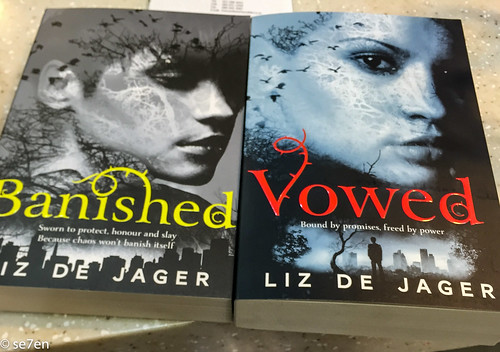
I never thought I’d be a writer of fiction. I wanted to be an archeologist – thanks Indiana Jones – or a wild life photographer or a journalist…what I ended up becoming is an administrator after doing my business degree and I realised that I should have studied stuff like humanities, mythology and theology. I still think its nuts making kids decide at the age of fifteen what they want to do for the rest of their lives. I didn’t realise until my twenties that my love for storytelling and reading COULD ACTUALLY BECOME A VIABLE JOB! I mean, who knew!? No one told me. Thank heavens I know better know.
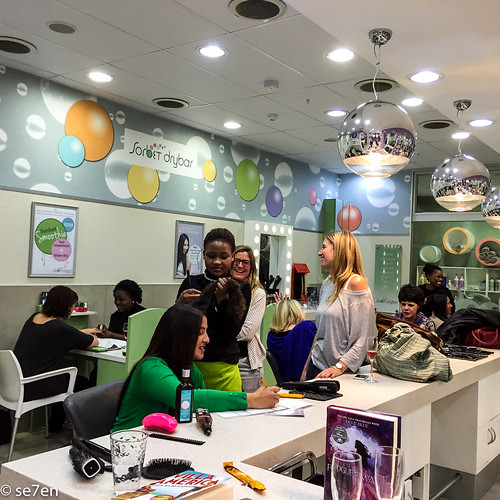
I love writing for the YA market. It’s what I’ve read exclusively for the longest time. I think that readers of YA books are clever and intelligent readers and they are pretty ruthless with what they like and don’t like and I think it’s definitely a challenge. I remember what it felt like being a teen, those crazy emotions, trying to figure out who I am, what my friends were up to and oh, god, boys were so confusing. So for me, taking that and creating a character who is an average teen but with everything amped up to 11 where she doesn’t really have the luxury to figure these things out because monsters want to kill her, was a lot of fun. I’ve had a lot of kids come up to me at school visits to say that they liked Kit because she was so practical and easy to understand, as were the situations she found herself in. And it startled me because: she hunts monsters and gets into fights and she does dumb stuff and then I realized these kids meant that they understood what she went through emotionally rather than physically. And I realized how astute these kids were picking up on how damaged my characters were even if I didn’t necessarily harp on about it on the page.
As for writing dreams: yes, for sure. I’d love to try a bit of everything. Justine Larbalestier has this list she keeps of the different types / genres of books she’d like to write and this really appeals to me. So yes, I’d like to try my hand at different things. I’m currently toying with a few ideas: a YA heist / a YA quest novel / a MG novel with a dash of tomboy adventure at its heart / and an adult fantasy that is so off the wall and weird I don’t even know…
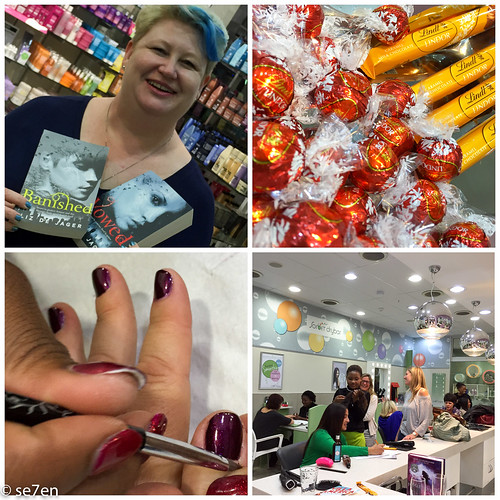
And the Se7en + 1th…
I’d say: just sit down and start. It doesn’t matter where you start as long as you start. It’s not creative writing in school. No one is going to reprimand you for bad grammar or not forming your sentences properly. Just start. Initially it’s all for you. Don’t worry that you don’t have fancy stationery or the prettiest notebook or a laptop. Just write the first word down and then the next and then the next. The thing about writing that no one told me until it was too late: it’s addictive. Once you start, you sort of unwind that tap inside you and it just…happens. Sometimes it is hellishly hard, don’t’ get me wrong. It literally feels like you’re bleeding onto the page or screen but sometimes, when you hit that high and the words and story just flows…there is nothing like it. My other bit of advice is to read. Libraries are fantastic places to pick up new ideas. Go in there and find new books by new authors to read, even if you don’t think you’ll enjoy the book. Challenge yourself. Trust me, you’ll learn from reading books you both enjoy and don’t enjoy. And the other thing about writing that very few people tend to mention: you really should give yourself permission to suck. Everyone sucks. Stephen King sucks too. He’s just been at it longer than we have. And we don’t see his draft zero or first drafts, but I bet they’re riddled with inconsistencies and bad grammar. Writing is about creating and it’s hard to do it perfectly, that’s why you get to go back and edit it, once you’re done. There’s no point in thinking your work is going to be utterly amazebuckets in your first draft. It won’t be. Writing is rewriting and edits. But first, you gotta get those words down. And that’s the important thing. Just start.
Huge thanks to Liz De Jager and Pan Macmillan South Africa, for a fabulous interview and a great night out.

One Reply to “Meet The Author: Liz De Jager of the Blackhart Legacy…”